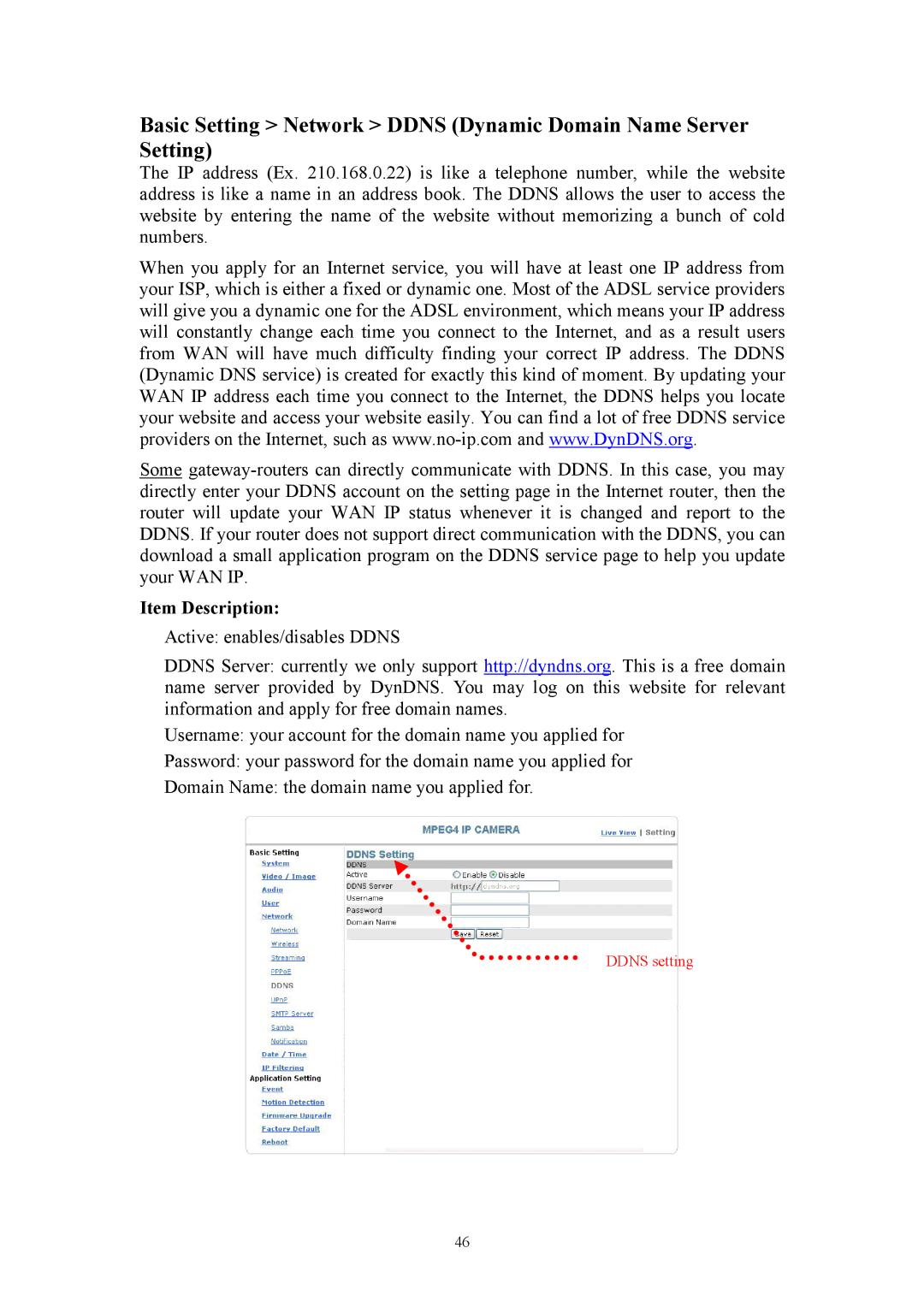
Basic Setting > Network > DDNS (Dynamic Domain Name Server Setting)
The IP address (Ex. 210.168.0.22) is like a telephone number, while the website address is like a name in an address book. The DDNS allows the user to access the website by entering the name of the website without memorizing a bunch of cold numbers.
When you apply for an Internet service, you will have at least one IP address from your ISP, which is either a fixed or dynamic one. Most of the ADSL service providers will give you a dynamic one for the ADSL environment, which means your IP address will constantly change each time you connect to the Internet, and as a result users from WAN will have much difficulty finding your correct IP address. The DDNS (Dynamic DNS service) is created for exactly this kind of moment. By updating your WAN IP address each time you connect to the Internet, the DDNS helps you locate your website and access your website easily. You can find a lot of free DDNS service providers on the Internet, such as
Some
Item Description:
Active: enables/disables DDNS
DDNS Server: currently we only support http://dyndns.org. This is a free domain name server provided by DynDNS. You may log on this website for relevant information and apply for free domain names.
Username: your account for the domain name you applied for
Password: your password for the domain name you applied for
Domain Name: the domain name you applied for.
DDNS setting
46
